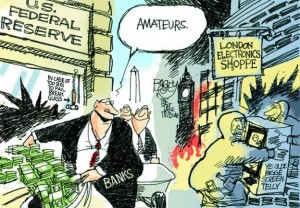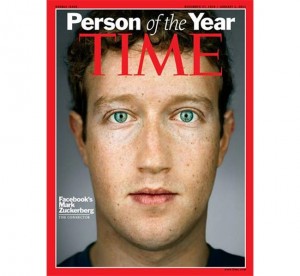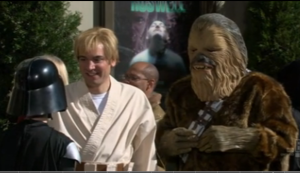One of our core foci at Civic Paths is the question of how civic engagement through online participatory cultures relates to ‘traditional’ forms of engagement, namely political activism within the democratic system, mediated by one’s affiliation with a particular political party. All three of our case studies (The Harry Potter Alliance, Invisible Children, and DREAM activists) are inherently youth driven, and even though each of them has clear political and non-political goals, they do not explicitly align themselves with any particular political direction, let alone any party. It is a new form of engagement, one that centers on causes, specific visions or dreams of a better world, and the sharing of particular media content. Claims of a political apathy amongst youths have existed since decades; however, based on our studies and observations, it seems more likely that the nature of political and civic activism has changed, and like so many other social practices, refuses to be confined to traditional if democratic hierarchical structures much longer.
At the same time, other new forms of civic engagement and activism emerge. These are also unconventional, such as the Pirate Parties in countries around the world. The Pirate Parties, actual national parties in 40 countries and are affiliated to their umbrella organization Pirate Parties International (PPI). Unlike mainstream political parties, the Pirate Parties have an agenda focused only on matters related to the Internet and information technology, such as improving personal privacy online, decreasing governmental control over information technologies and information retention, and reforming copyright laws to comply with the demands of the new media age. While I couldn’t find any statistics on the Pirate Parties’ member or voter demographics worldwide, I did find several election reports from Germany. So far, the German Pirate Party has not been able to make it into the national parliament (Germany requires a party to receive at least 5% of votes in order to receive seats in parliament), but on a local and state level, the German Pirate Party has been increasingly successful, getting seats on larger city councils such as Aachen and getting close to the 5% requirement in state parliaments. What is more important, however, is that if broken down by age group, the Pirate Party is in fact able to garner at least 5% amongst voters aged 18 to 34. What ultimately stops them from reaching parliament, however, are the remaining voters, aged 35+ who tend to stick with mainstream political parties.
Finally, youth unemployment throughout the world is increasing rapidly. Some countries, such as Italy, Greece, and Spain are facing youth unemployment rates of up to 45% – despite overall high education levels. And while both the UK and the US have rates that are lower – 20% and 18.1% respectively – they are still too high, no doubt. Sociologists frequently warn about the long-term effects of this trend, but so far only ex-prime minister of the UK, Gordon Brown picked up on the issue and called upon the G20 leaders to finally take action and to call an emergency G20 summit.
These are three different trends that have one thing in common: The relationship between youth and politics, today. For one, as our case studies show, youths aren’t politically apathetic. They are engaged, but in ways that differ from traditional understandings of politics. Like in so many cases nowadays, young people avoid gate keepers (in this case, political parties) and decide to take action directly and to the cause they are concerned about. Secondly, it may be that ‘traditional’ politics are not fast enough (or willing enough) to keep up with what young people care about. In Germany, no other party but the Pirate Party even mentions the regulation/de-regulation of the Internet and information technologies in their programs. However, new media and the legislation surrounding it are an integral part of everyone’s life today, not to mention teenagers and young adults, and so it is not surprising that the Pirate Party can easily muster support from the ranks of the young people.

A sketch from The Economist highlighting the communication gap, and some of the underlying causes for the unrests in the UK.
The same goes for youth unemployment. The issue is burning – literally, in the UK. When the Economic Crisis hit back in 2008, the ones that felt it most right away weren’t the youths around the world. I remember being asked by a friend of my father’s why “us youths” weren’t out on the street protesting against the banks terrible practices that brought us into this mess. I told him it was because for us, nothing much changed; we were all students, at high school or at university, and we didn’t have any money that the banks could have gambled away. Little did I know that for the young people, the long-term consequences would almost be worse, in the form of extremely slow and over-saturated labor markets.
What all of this boils down to, then, is a growing communication gap between the different generations in our modern societies. New media technologies have changed the ways in which political activism takes place, and facilitated non-traditional forms of engagement that do not require political party systems. However, NMTs cannot be made solely responsible; the root of this trend is a lot deeper. If youths around the world feel the need to find new ways to get involved and to take ‘politics’ into their own hand, isn’t this a signal that there must be something the ‘traditional’ system fails to offer to them? As our case studies show, and examples like the German Gamers’ response to a discriminating TV portrayal, young people communicate, organize, and take action in different ways than their parents and grandparents. If they don’t vote it doesn’t mean they don’t care, but that they feel that their political system doesn’t offer solutions or actions. Instead of voting for a party and waiting for it to take action, many youths today prefer to go out to do it themselves.
It would be easy to use this blog post as a loud accusation towards ‘all those ignorant politicians,’ but I do not believe that making accusations is the right thing to do in this case. The times are changing rapidly, and it is hard to keep up for both young and old. So instead, I would like to urge politicians and the older generations to stop and to listen for a moment, so that in future, the communication gap between the generations does not grow much further, but that we can all find ourselves on the same playing field, talking to and with each other, just like we’re supposed to in a functioning democratic society.






